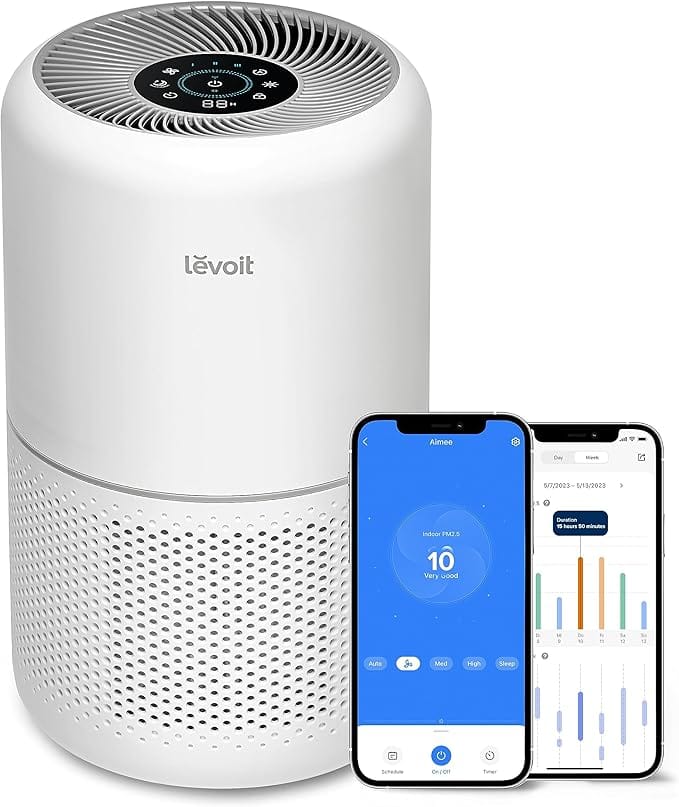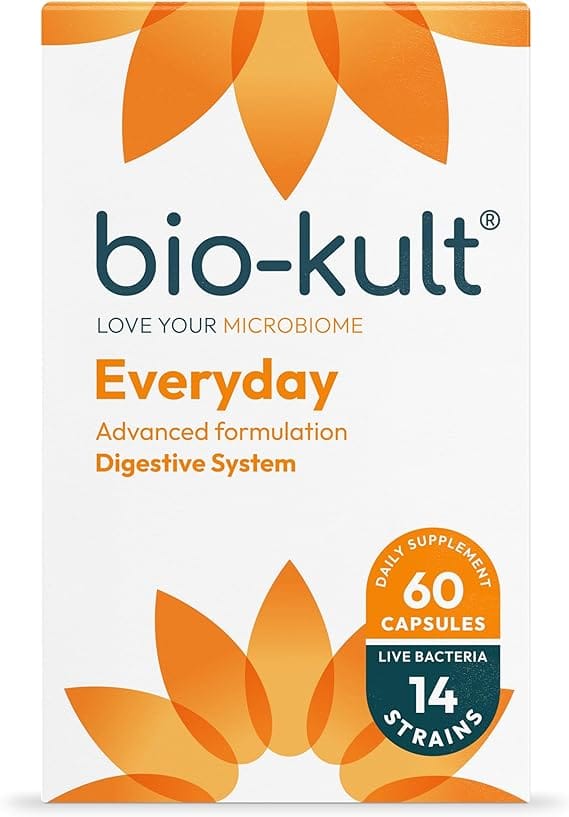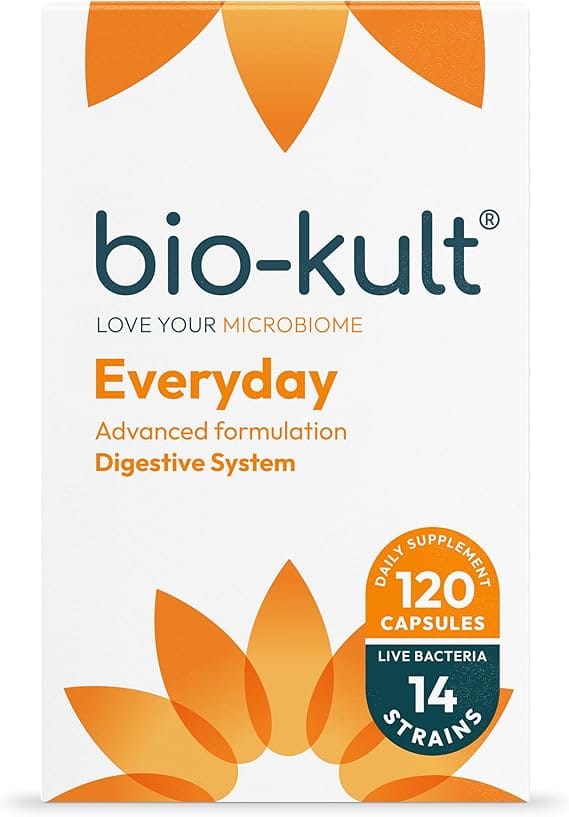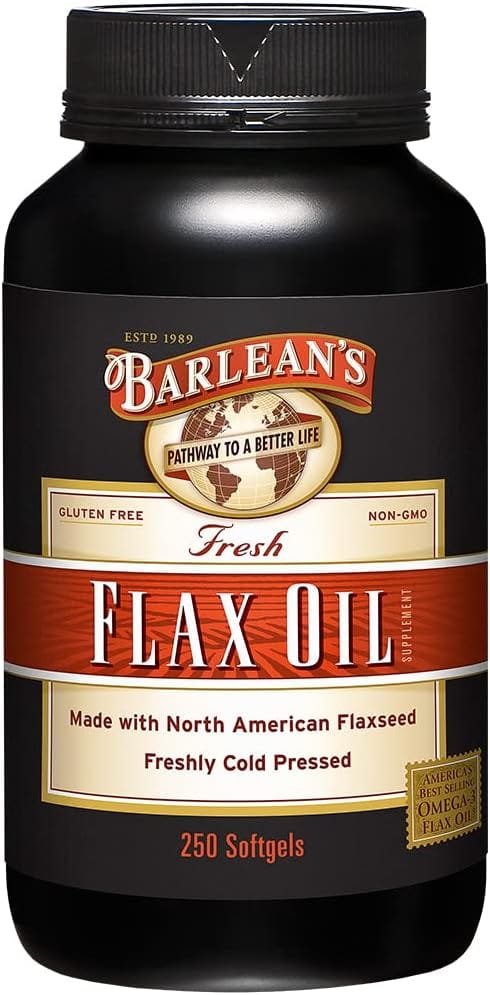Food and Longevity: The Role of Diet in Promoting a Longer, Healthier Life
Longevity, or the ability to live a long and healthy life, is a goal that has intrigued humanity for centuries. Throughout history, societies have sought various methods to achieve longer life spans, from traditional medicines and herbs to lifestyle practices and modern scientific advancements. In recent years, one of the most prominent factors identified in achieving longevity is diet. What we eat directly impacts our health, aging process, and risk of chronic diseases. The food we consume can either promote or hinder longevity, making it crucial to understand the connection between diet and aging.
Buy from Amazon > Air Fryer 9-in-1, Compact & Large 6-Qt, Fast Turbo Modes, 90°–450°F Even Results With Precise Temperature Control, Up to 95% Less Oil*, Roast, Bake, Dry, Reheat, Frozen, Broil, Proof

The relationship between food and longevity is multifaceted, involving numerous physiological processes. While genetics do play a role in how long a person lives, research shows that diet is a key modifiable factor in determining life expectancy. Studies have consistently highlighted that a balanced, nutrient-rich diet is linked to a reduced risk of chronic diseases such as heart disease, diabetes, cancer, and neurodegenerative disorders. These conditions not only shorten life spans but also negatively impact the quality of life as people age.
Buy from Amazon > Smart Wifi Air Purifier for Home Bedroom 100m², CADR 240m³/h, HEPA Filter with Air Quality Sensor, Air Frenshener, Alexa Control & Quiet Auto Mode, Removes Pollen Allergen Dust Odour, Core 300S

The Science of Longevity
Longevity science is rooted in understanding how the body ages and the mechanisms that contribute to aging. Over time, cells accumulate damage due to various factors, including oxidative stress, inflammation, and genetic mutations. This damage leads to the gradual decline in the function of organs and tissues, making individuals more susceptible to diseases associated with aging. The body’s ability to repair itself diminishes with age, and the accumulation of cellular damage contributes to the signs of aging.
Buy from Amazon > Ozone Generator for Water, Air Purifier Household Negative Ion Purifier, Fruit and Vegetable Meat Cleaning Ozone Machine, Remove Odor for Home and Car, with 12V Converter, 600mg/h

Research in recent decades has identified several biological mechanisms that are influenced by diet and contribute to longevity. Some of the most important of these include:
- Oxidative Stress and Antioxidants: Oxidative stress occurs when there is an imbalance between free radicals (unstable molecules that can damage cells) and antioxidants (molecules that neutralize free radicals). Free radicals are produced as a result of normal cellular metabolism, but their levels can increase due to environmental factors like pollution, smoking, and poor diet. Antioxidants, found in fruits, vegetables, and certain other foods, play a critical role in neutralizing free radicals, thus reducing cellular damage. Diets rich in antioxidants can help reduce oxidative stress, slow down aging, and protect against age-related diseases.
Buy from Amazon > Bio-Kult Everyday Multi-Strain Formulation Probiotics for Digestive System, 60 Capsules (Pack of 1)

Buy from Amazon > Bio-Kult Everyday Multi-Strain Formulation Probiotics for Digestive System, 120 Capsules

Inflammation and Anti-Inflammatory Foods: Chronic low-grade inflammation is associated with many age-related diseases, including arthritis, cardiovascular disease, and Alzheimer’s disease. Inflammation is a natural response by the immune system to injury or infection, but when it becomes persistent, it can cause damage to tissues and organs. Certain foods, such as omega-3 fatty acids (found in fatty fish, flaxseeds, and walnuts) and polyphenols (found in fruits, vegetables, and herbs), have anti-inflammatory properties and can help regulate the inflammatory response, potentially extending healthy life expectancy.
Buy from Amazon > FreeSip Insulated Stainless Steel Water Bottle with Straw for Sports and Travel, Leak Proof, BPA-Free, 700ml, Foggy Tide

- Caloric Restriction and Autophagy: Caloric restriction (CR) involves reducing caloric intake without malnutrition and has been shown to extend life span in a variety of organisms, including yeast, worms, flies, and rodents. While human studies on caloric restriction are still in the early stages, there is evidence suggesting that CR can activate processes like autophagy, which is the body’s way of cleaning out damaged cells and regenerating new ones. By reducing the intake of calories, the body shifts to repair and maintenance modes, potentially improving cellular health and slowing down aging.
Buy from Amazon > Barlean’s Flaxseed Oil Softgels, Cold-Pressed Flax Seed Supplement with 1,650 mg ALA Omega-3 Fatty Acids for Joint & Heart Health, 1000mg, 250 ct

- Gut Health and Microbiome: The gut microbiome, composed of trillions of bacteria, fungi, and other microorganisms, plays a crucial role in digestion, immunity, and overall health. Research has shown that an imbalance in the gut microbiome, known as dysbiosis, can contribute to aging and age-related diseases. A healthy, diverse microbiome, supported by a diet rich in fiber, prebiotics, and probiotics, has been linked to better health outcomes and may contribute to longevity. Consuming a variety of plant-based foods can nourish beneficial gut bacteria, promoting a balanced microbiome.
Buy from Amazon > Gaming Glasses • Blue Light Blocking Computer Screen Glasses | Anti Fatigue & Eyestrain | ONE Amber

Key Dietary Practices for Longevity
Certain dietary practices have been consistently linked to longer life spans in various populations. These practices focus on nutrient-dense, whole foods, and sustainable eating habits. Let’s examine some of the dietary patterns and foods that are associated with longevity.
Buy from Amazon > Centrum Advance Multivitamin Tablets for Men and Women, 100 Tablets, Vitamins with 24 Essential Nutrients, including Vitamin C, D, and Zinc

- The Mediterranean Diet: One of the most well-researched diets in the context of longevity is the Mediterranean diet. This eating pattern is traditionally followed in countries like Greece, Italy, and Spain, where individuals often live longer, healthier lives. The Mediterranean diet emphasizes plant-based foods, including fruits, vegetables, whole grains, legumes, nuts, and seeds. It also includes healthy fats, particularly from olive oil, as well as moderate consumption of fish and seafood. Red meat is consumed sparingly, and dairy products are eaten in moderation. This diet is rich in antioxidants, anti-inflammatory compounds, and healthy fats that promote heart health, cognitive function, and a reduced risk of chronic diseases.
- The Blue Zone Diets: “Blue Zones” refer to regions of the world where people live significantly longer than the average global life expectancy. These areas include Okinawa (Japan), Sardinia (Italy), Nicoya Peninsula (Costa Rica), Ikaria (Greece), and Loma Linda (California, USA). While each of these regions has its own unique dietary practices, there are common themes among them. The diets of Blue Zone populations are typically plant-based, with a focus on vegetables, fruits, whole grains, legumes, and nuts. They also tend to consume small portions of animal products, if at all. For example, Okinawans eat sweet potatoes and tofu, while Sardinians eat a lot of vegetables and beans. These diets are rich in fiber, vitamins, and minerals, and they promote healthy aging.
- Plant-Based Diets: There is growing evidence to support the health benefits of plant-based diets, which focus on consuming foods derived from plants while minimizing or eliminating animal products. Research suggests that plant-based diets are associated with a lower risk of chronic diseases, including heart disease, cancer, and type 2 diabetes, which are common causes of premature death. These diets are high in fiber, vitamins, minerals, and antioxidants, which can reduce inflammation, protect against oxidative stress, and improve overall health. Adopting a predominantly plant-based diet can help people live longer, healthier lives.
- Intermittent Fasting: Intermittent fasting (IF) involves cycling between periods of eating and fasting. Popular methods include the 16:8 method (fasting for 16 hours and eating within an 8-hour window) and the 5:2 method (eating normally for five days and restricting calories for two non-consecutive days). IF has been shown to activate autophagy, improve metabolic health, reduce inflammation, and protect against neurodegenerative diseases. Studies in animals suggest that intermittent fasting can extend lifespan, and there is growing interest in understanding how these benefits apply to humans.
- Traditional Dietary Habits: In addition to the Mediterranean and Blue Zone diets, many traditional eating patterns around the world have been linked to longer life spans. For example, the Japanese have a practice called “Hara Hachi Bu,” which means eating until they are 80% full. This practice helps prevent overeating, which can contribute to obesity and related diseases. Similarly, in other cultures, mindful eating and portion control are emphasized as important aspects of a healthy lifestyle that promotes longevity.
The Role of Specific Foods in Longevity
Certain foods stand out due to their unique properties that contribute to health and longevity. These include:
- Berries: Blueberries, strawberries, and other berries are rich in antioxidants, particularly anthocyanins, which have been shown to reduce oxidative stress and inflammation. These fruits also support brain health and improve cognitive function, reducing the risk of dementia and Alzheimer’s disease.
- Leafy Greens: Spinach, kale, and other dark, leafy greens are packed with vitamins, minerals, fiber, and phytonutrients. They are known for their ability to support heart health, promote detoxification, and protect against cancer.
- Nuts and Seeds: Almonds, walnuts, flaxseeds, and chia seeds are excellent sources of healthy fats, protein, and fiber. They are particularly beneficial for heart health, reducing inflammation, and supporting brain function.
- Legumes: Beans, lentils, and chickpeas are rich in protein, fiber, and essential nutrients. They help stabilize blood sugar levels, improve gut health, and promote longevity by reducing the risk of cardiovascular disease and certain cancers.
- Olive Oil: Extra virgin olive oil is a staple of the Mediterranean diet and is known for its heart-healthy monounsaturated fats and anti-inflammatory properties. It has been linked to a reduced risk of heart disease, stroke, and cancer.
- Fish: Fatty fish, such as salmon, sardines, and mackerel, are rich in omega-3 fatty acids, which have been shown to reduce inflammation, improve brain function, and support heart health.
Conclusion
Food plays a central role in promoting longevity. While genetics influence how long a person may live, lifestyle factors like diet can significantly alter the course of aging and health. By consuming a nutrient-rich, balanced diet that includes whole, plant-based foods, healthy fats, and lean proteins, individuals can reduce the risk of chronic diseases, enhance their quality of life, and potentially extend their life expectancy. Embracing the dietary patterns found in longevity hotspots, such as the Mediterranean diet, Blue Zone diets, and plant-based eating habits, can provide individuals with the tools they need to live longer, healthier lives. As research in nutrition and aging continues to evolve, the connection between food and longevity will only become clearer, empowering people to make informed choices about their diets and their health for years to come.
Longevity of Life: An In-Depth Exploration
Longevity refers to the length of an individual’s life, but it is not just about the number of years one lives. Longevity encapsulates the concept of living a long and healthy life, maintaining vitality and well-being in the face of aging and disease. It has been a subject of fascination for centuries, with various cultures, philosophies, and medical advancements attempting to understand the secrets behind long life. The quest for longevity not only involves extending the duration of life but also enhancing the quality of life as one ages. As life expectancy has increased globally due to advancements in healthcare, technology, and living standards, the search for ways to maximize longevity has gained more attention. This article explores the factors influencing longevity, scientific advancements in aging, and practical lifestyle strategies that promote a longer, healthier life.
Genetic Factors and Longevity
Genetics is often considered one of the most significant contributors to longevity. Inherited traits can influence an individual’s lifespan by affecting their susceptibility to certain diseases, how their bodies age, and how efficiently their cells repair themselves. Research has shown that some people possess genetic variations that protect them from aging-related diseases, such as cardiovascular disease, cancer, and diabetes. These individuals are more likely to live longer, healthier lives than those who do not inherit such protective genes.
For example, research on centenarians—people who live to be 100 years or older—has revealed certain genetic patterns that might contribute to their extended lifespan. Studies have identified specific genes that play a role in regulating cellular repair, inflammation, and metabolism, all of which have implications for aging. Moreover, certain populations, such as those in the “Blue Zones”—regions known for a high concentration of centenarians—have demonstrated that genetics is just one piece of the puzzle. In these communities, lifestyle choices and environmental factors play a significant role in their inhabitants’ longevity.
Environmental and Lifestyle Factors
While genetics may provide the foundation for longevity, the environment and lifestyle choices are critical in determining whether someone lives a long, healthy life. Numerous studies have shown that factors such as diet, physical activity, social connections, and mental health can significantly impact an individual’s lifespan.
- Diet and Nutrition: A balanced diet is crucial for promoting longevity. People in regions with high life expectancy, such as Okinawa in Japan, eat diets rich in vegetables, fruits, whole grains, and legumes, with limited consumption of processed foods and animal products. The Mediterranean diet, known for its emphasis on olive oil, nuts, fish, and fresh produce, has also been associated with a reduced risk of chronic diseases like heart disease and diabetes. In addition to what people eat, how much they eat plays a role. Caloric restriction has been shown to extend the lifespan of various animal species and is believed to activate certain biological pathways that promote cellular repair and longevity.
- Physical Activity: Regular physical activity is one of the most effective ways to promote health and extend lifespan. Exercise has been proven to reduce the risk of chronic conditions like obesity, cardiovascular disease, and diabetes. It also helps maintain muscle mass and bone density, which are essential as people age. Moderate exercises such as walking, swimming, and cycling can significantly improve cardiovascular health and overall longevity. Furthermore, engaging in physical activity stimulates the release of endorphins, which improve mood and mental health, contributing to a sense of well-being and longevity.
- Social Connections and Community: Social ties and a sense of community have profound effects on longevity. Strong social support systems help people manage stress, combat loneliness, and promote overall emotional health. In the Blue Zones, communities with close-knit social networks have been shown to have higher rates of longevity. Studies indicate that individuals who maintain meaningful relationships with family, friends, and neighbors tend to live longer than those who are socially isolated.
- Mental and Emotional Health: A positive outlook on life and mental well-being are essential for longevity. Chronic stress, depression, and anxiety have been linked to a range of physical health problems, including heart disease, stroke, and a weakened immune system. People who engage in activities that reduce stress, such as meditation, mindfulness, and yoga, are likely to live longer and enjoy a better quality of life in their later years. Furthermore, maintaining cognitive health through lifelong learning, social interaction, and mental stimulation has been associated with a lower risk of age-related cognitive decline, such as Alzheimer’s disease.
- Sleep: Adequate sleep is vital for longevity. During sleep, the body repairs itself, consolidates memories, and restores energy levels. Chronic sleep deprivation has been linked to a variety of health issues, including a weakened immune system, high blood pressure, obesity, and an increased risk of heart disease. Older adults, in particular, may experience disrupted sleep patterns, but ensuring quality sleep remains crucial for health and longevity. Good sleep hygiene, such as maintaining a regular sleep schedule, avoiding stimulants like caffeine before bed, and creating a restful sleep environment, can help individuals enjoy better sleep quality and promote longer life.
Advances in Medical Science and Aging
In addition to genetic and lifestyle factors, medical science has made remarkable advancements in understanding aging and developing ways to extend lifespan and healthspan (the period of life spent in good health). Researchers have made significant strides in understanding the biological processes of aging, and their discoveries may eventually lead to interventions that slow down or even reverse aging.
- Cellular Aging and Telomeres: One of the most prominent areas of research in aging is the study of telomeres—protective caps at the ends of chromosomes that shorten as cells divide. Telomere shortening has been linked to cellular aging and age-related diseases. Some scientists believe that by finding ways to preserve or lengthen telomeres, it may be possible to slow down the aging process and extend life. Telomerase, an enzyme that can help rebuild telomeres, has been studied as a potential therapy for extending lifespan.
- Senescence and Stem Cells: Cellular senescence is another key area of aging research. Senescent cells are damaged cells that no longer divide or function properly. These cells accumulate with age and contribute to the aging process and the development of age-related diseases. Research into senolytics—drugs that target and eliminate senescent cells—has shown promise in extending healthy lifespan in animal models. Stem cell therapies also hold potential for regenerative medicine by replacing damaged or aging cells with new, healthy ones, offering the potential for rejuvenation.
- Genetic Interventions and Anti-Aging Drugs: Advances in genetics and biotechnology are opening new possibilities for extending life. Research into genetic modifications, such as altering specific genes involved in aging pathways, is a rapidly growing field. One example is the development of drugs that target the mTOR pathway, which regulates cell growth and metabolism. Inhibiting mTOR has been shown to extend lifespan in animals and may hold promise for humans. Other drugs, such as metformin (used for diabetes) and rapamycin (an immunosuppressant), are being studied for their potential to delay aging and prevent age-related diseases.
- Regenerative Medicine: The field of regenerative medicine, which includes stem cell therapy, tissue engineering, and gene therapy, holds great promise for increasing both lifespan and healthspan. Regenerative techniques aim to repair or replace damaged tissues and organs, potentially reversing the effects of aging. Researchers are exploring how to use stem cells to regenerate heart tissue after a heart attack, restore damaged neural cells in conditions like Parkinson’s disease, and even regenerate skin and muscle tissues.

